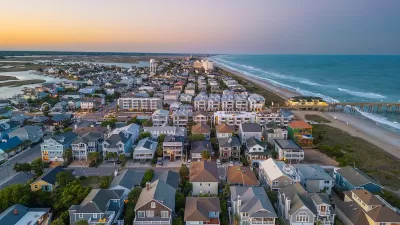Our plan was to seek out community-based organizations trying to back away from developer fees, pursuing recent implications that smaller organizations should consider leaving development work to more efficient, larger ones. We found none.
The article "Getting Beyond the Developer Fee" has spurred some discussion.
"This article accurately portrays the state of the community development field . . . and it should worry those who are committed to resident-led community development," noted Joe Kriesburg of the Massachusetts Association of CDCs. He then gave a list of points to consider about the current environment, including:
- Over the past 20-plus years there has been an intentional and dramatic investment in building the CDFI sector through certification, grants, technical assistance, and access to capital. There has been nothing comparable for CDCs. This needs to change.
- Our housing finance system has become dominated by tax credits–LIHTC, NMTC, Historic. More flexible and easier to use funds like HOME and CDBG have been slashed. These policy decisions have had significant impact not just on who develops housing but on what we develop.
- Those who argue that smaller CDCs should focus on organizing, resident services, and other non-real estate activities need to identify sustainable business models to support these activities. The reality is that there is no substitute for owning real estate.
His final point reminded me of the path we took with "Getting Beyond the Developer Fee." Our original plan was to seek out community-based organizations that were actively trying to back away from developer fees, pursuing recent implications that smaller organizations should consider leaving development work to more efficient, larger organizations.
We found none. (This doesn't mean they don't exist, of course, but perhaps they are not so common.)
We did find many organizations thinking in new ways about diversifying their incomes and programming, both for fiscal sustainability and in a move to recapture the comprehensive nature of this work, but community development groups generally don't see those alternatives as independently supportable enough to let them back away from real estate deals.
FULL STORY: Earned Income Should Not Replace Public Funding for Community Development

Alabama: Trump Terminates Settlements for Black Communities Harmed By Raw Sewage
Trump deemed the landmark civil rights agreement “illegal DEI and environmental justice policy.”

Planetizen Federal Action Tracker
A weekly monitor of how Trump’s orders and actions are impacting planners and planning in America.

The 120 Year Old Tiny Home Villages That Sheltered San Francisco’s Earthquake Refugees
More than a century ago, San Francisco mobilized to house thousands of residents displaced by the 1906 earthquake. Could their strategy offer a model for the present?

Ken Jennings Launches Transit Web Series
The Jeopardy champ wants you to ride public transit.

BLM To Rescind Public Lands Rule
The change will downgrade conservation, once again putting federal land at risk for mining and other extractive uses.

Indy Neighborhood Group Builds Temporary Multi-Use Path
Community members, aided in part by funding from the city, repurposed a vehicle lane to create a protected bike and pedestrian path for the summer season.
Urban Design for Planners 1: Software Tools
This six-course series explores essential urban design concepts using open source software and equips planners with the tools they need to participate fully in the urban design process.
Planning for Universal Design
Learn the tools for implementing Universal Design in planning regulations.
Clanton & Associates, Inc.
Jessamine County Fiscal Court
Institute for Housing and Urban Development Studies (IHS)
City of Grandview
Harvard GSD Executive Education
Toledo-Lucas County Plan Commissions
Salt Lake City
NYU Wagner Graduate School of Public Service




























